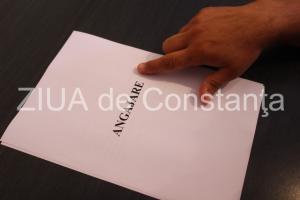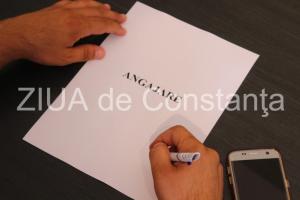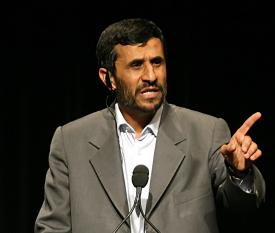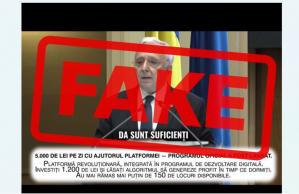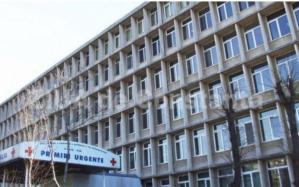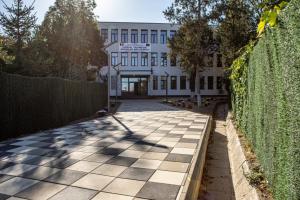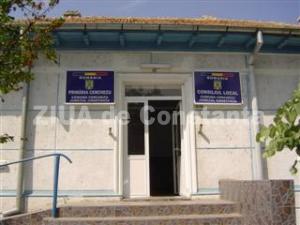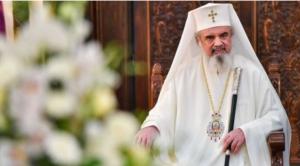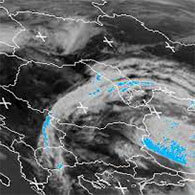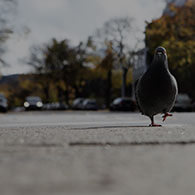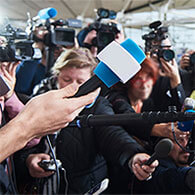Ambassador to NATO Ivo Daalder On the Future of NATO February 23, 2010,Washington, D.C.
Ambassador to NATO Ivo Daalder On the Future of NATO: February 23, 2010,Washington, D.C. 1688
Marime text
1688
Marime text
We thought with
our able Ambassador to NATO Ivo Daalder in town, it would be a good opportunity
for you to catch up both to kind of put the comments today and yesterday in
context, but also answer your questions about where the alliance is today.
So, Ivo, thank you for coming in. Always a pleasure to see you
(inaudible).
AMBASSADOR
DAALDER: Good to
be here. Thanks, P.J. Good morning. As P.J. said, we have
three major speeches by three principal national security officials in the
course of less than 24 hours.
The reason for
those speeches specifically is that the heads of state and government in April
decided - of NATO decided that NATO needed a new strategic concept, and we have
been in the process of a rather public debate about what that strategic concept
should look like. And there's a seminar today at NDU which - where
Secretary Gates and National Security Adviser Jones will be speaking - that goes
into that for the fourth time. It's the fourth seminar. Secretary
Albright, the chair of the group of experts, is helping Secretary General Anders
Fogh Rasmussen to draft this concept, which will be decided by - or approved by
the heads of state and government in their summit in November in Lisbon.
In the speeches
that the secretaries and National Security Advisor made and are about to make,
we sought to stress four points. First and foremost important is that
NATO's security promise has not changed despite the fact that the strategic
landscape in which it is taking place is changing quite dramatically. We
require new thinking about how we respond to new threats, but that we will
respond and that we will do so within a NATO context remains a bedrock principle
of this alliance.
In that sense,
Article 5 of the North Atlantic Treaty, which says that an attack against one is
an attack against all, remains the bedrock of the alliance. And in order
to have that Article 5 operate effectively in the world that we live in today,
we need the deployability of forces, we need the ability for forces to move from
different places across territory, we need to be prepared through exercising and
planning to show and ensure that NATO is prepared to confront the threats that
we face to the territory and the citizens of NATO. We need to continue to
rely on a deterrence based on a mix of conventional and nuclear forces.
And we need, in
the new environment, to make territorial missile defense a mission of this
alliance, a mission to defend against a new kind of armed attack, that which
arrives on ballistic missiles, whether these weapons come from Iran and hit
Western Europe or North Korea and towards North America. In both
instances, they would be a responsibility for Article 5 to be dealt
with.
The second
point, one that Secretary Clinton particularly stressed yesterday, is a real
interest by this Administration and indeed by NATO to foster a cooperative
relationship with Russia that is aimed at producing concrete results. We
want to bring NATO and Russia closer, but in order to advance areas of
cooperation like missile defense, like greater transparency and conventional
forces in Europe, like Afghanistan. But we also want to make sure that as
we try to get closer, that we don't skate over our differences, which are real
and which Secretary Clinton laid out yesterday with respect to Georgia, with
respect to our insistence that we will be able to welcome new members in this
alliance without anyone having a veto, with respect to the fact that the
sovereignty and territorial integrity of all states in Europe and indeed beyond
remains critical.
The third point
to - stressed was that security today isn't just a purely military task.
It requires improved civil-military capabilities and integration and enhanced
NATO capacity for civilian deployments. We have a new, strengthened senior
civilian representative in Afghanistan, which is one manifestation of that fact,
but what we need is a comprehensive approach that allows NATO to work very
closely with other institutions, whether it's the UN or the European Union or
others. But at the same time, if NATO is to deploy, as it will, at times,
by itself, it will have to have the capacity to provide that comprehensive
approach, capability itself, deploying both military and civilian
areas.
Finally,
something stressed again by Secretary Clinton but really emphasized by Secretary
Gates is the issue of how, in a time of limited resources, we need to make sure
that the institutions we have are effective and efficient. And the reform
of NATO, which remains an institution, a headquarter, and a command structure
that is still stuck very much in the Cold War, is now a high priority for
everyone. We need to have an agile and flexible decision-making structure
in order to deal with the new challenges of the new world.
And in order to
do that, we will have to have a fundamental reform of the institutions and the
organizations that are out there. Indeed, as Secretary Gates said, without
that reform, the new piece of paper laying out a strategic concept will not be
worth the paper it is written on.
And with that,
let me open it up to questions.
QUESTION: Thanks for doing this. I was hoping you could talk a little bit more about out-of-area missions, not just in terms of, you know, going outside, physically, of the territory of NATO member border states, but also in terms of - it sounds like between what this Administration is saying and what's going on at the conference and what the Secretary-General Rasmussen was talking, that this whole idea of security doesn't necessarily just mean physical security. There's a lot more talk about cyber-security, piracy, terrorism, things - nuclear proliferation and things like that. And it sounds like as you do this Strategic Concept that there's a whole new reexamination of what a "security alliance" really means. And although it'll always be - you know, the military will always be the bedrock of it, if you could just expand a little bit on what the U.S. is thinking in terms of what the NATO of the 21st or even 22nd century looks like in terms of providing security for its members and what will be required.
AMBASSADOR
DAALDER: Well, let me
worry only about the NATO in the 21st century first --
QUESTION:
Okay.
AMBASSADOR
DAALDER: -- for
now. And I'll leave it to --
QUESTION:
Okay.
AMBASSADOR
DAALDER: -- future
generations to worry about the NATO for the 22nd century.
(Laughter.)
QUESTION: Well,
there's only 90 more years. (Laughter.)
AMBASSADOR
DAALDER: There's
only 90 more years. (Laughter.)
QUESTION: Maybe you
--
AMBASSADOR
DAALDER: I'm close
to 50, so I won't make that 90 years, I think. But in any case, I think
the question is a very apt and correct one, which is we are living in a
different strategic environment in which threats really don't know borders in
the way that the traditional threats that we faced - large-scale conventional
armies crossing borders to conquer territory, which is what NATO was about when
it was formed in 1949 - those threats are disappearing or are becoming at least
less of a concern versus the kinds of capabilities that are now crossing
borders, whether it's from failed states that provide safe havens for
terrorists, whether it's cyber-attacks that can be launched from any computer
attached to any - to the worldwide web from anywhere in the world, whether it is
piracy as a new phenomenon, an old phenomenon reappearing, put in that way, and
the others that you mentioned.
In order to
provide security for NATO, it is important that one tackles those challenges and
threats, if necessary, at the source, which means that NATO will have to operate
beyond the territorial confines of the North Atlantic Treaty. And it does,
which is why we're in Afghanistan. We have 120-some-thousand troops, and
growing, in Afghanistan today because the security of the United States and the
NATO allies in Europe and Canada is affected by what happens in
Afghanistan. We have a counter-piracy mission in the Gulf of Aden because
the security of our economic lifeline is affected by the degree to which we can
provide security for the ships that are crossing those lines.
Those are the kinds of operations that we are engaged in, that we are likely to continue to engage in, some of which will follow under Article 5. A defense against ballistic missile attack - even those of ballistic missiles come from very far if they attack NATO territory - would be an Article 5 contingency. Some of them don't follow under Article 5. And the importance about what NATO is, it's a security community in addition to being a military alliance. When one or more of its allies are threatened, under the treaty they can come together and consult and decide on common action. And they will, in the future, be more likely to decide on common action when there is not an Article 5 contingency, there is not a direct armed attack on the territory of one of the members but there is a security challenge that affects one or more of those members. And NATO must have the capacity to deal with that. It must have the forces to deploy. That's why we need a civilian capacity as well as a military capacity. We don't need to rebuild the countries of NATO. We have to find a way to provide civilian effect and military effect in states that are failing or are fracturing or have already failed, which tend to be outside of the European area. So NATO will be involved. NATO is an actor in a globalized world. And NATO will be involved as an actor in that globalized world, far from the shores, as it has been today, when it has launched the largest military operation in the history of the alliance, 5,000 kilometers from the headquarters in Brussels.
Sir.
QUESTION: Hi, Kirit
Radia with ABC News. I had a question for you about Russia.
Responding to the Secretary's speech, the Russians seemed to reject her
outstretched hand for increased dialogue and her assertion that the expansion of
the alliance poses no threat to Russia. How do you get past this with the
Russians? What steps do you take? And what specifically was the
Secretary referring to when she talked about cooperation, dialogue, observers,
that kind of thing? Can you flesh out any more proposals you might
have?
AMBASSADOR
DAALDER: Well,
we're sitting in every day and every week. We meet in the NATO-Russia
Council, where the NATO countries and Russia come together as 29 countries to
discuss a whole series of issues in front of us - how can we cooperate on
Afghanistan, on dealing with proliferation, on counterterrorism, on
counter-piracy. And the discussions we're having over there are designed
to identify those areas in which Russia and NATO have common interests, common
perspectives of what their security - how their security is being affected, and
hopefully leading to common - concrete, common action to deal with those
threats.
That is possible
in some areas, and the Secretary yesterday in her speech mentioned two of them
importantly. One is in counternarcotics, where it is very clear from the
Russia perspective, from our perspective, that the narco trade that is
associated with Afghanistan is one that affects the security and the well-being
of Russians as much as it does anyone else. And therefore, we have jointly
worked together to train counternarcotics folks in Afghanistan and Central
Asia.
The other is in
Afghanistan writ large. Russia does not want NATO to fail in
Afghanistan. The consequences of failure in Afghanistan are not just for
us; they're for Russia too, which is why it has allowed U.S. lethal equipment to
be transferred across Russia and has an agreement with NATO for nonlethal -
transfer of nonlethal items across Russia.
So those are two
areas. A third that we think is an extremely important one and where we
could do more is on missile defense. We think that the threat from the
Middle East to Europe is a threat that is not just limited to NATO
territory. It is also directed potentially towards other countries in
Europe, including Russia. And that having a capacity of cooperating in
terms of early warning radars and hooking them into each other and being better
suited to work together, and in other ways, we can cooperate to provide a
defense not just of NATO territory but also of Russia in order to deal with this
threat.
QUESTION: Just to
follow up real quick, because they specifically in their response overnight said
that they rejected her notion that the expansion of NATO poses no threat to
Russia. What do you - they called it a burp of the Cold War. What -
how do you respond to that? How do you reassure the Russians - this has
been going on for a while now - that NATO expansion into the Caucasus, into
Ukraine, poses no threat to Russia?
AMBASSADOR
DAALDER: Well, we
would argue that the record would speak for itself, that if you have looked at
the enlargement of NATO and indeed enlargement of the European Union over the
past two decades, the result has been a Europe that is more united, more
peaceful, more free and more democratic than at any time in history. And
the enlargement of the alliance is one way - that is the most important reason
for that occurring.
Russia, we
believe, should welcome to having stable, democratic, strong, united Europe and
its borders. And indeed, it is our aim that she be part of that very
Europe that is strong, united, democratic, and free. So we don't believe
that enlargement is, as the Secretary said, a threat. We actually believe
that the stabilization of parts of the world that were quite unstable is a
direct contribution to the security of Russia.
QUESTION: You had -
following up on that same question, however, if you look at this relationship
which has been going on for quite a long time, it's not - it appears not to be
really fulfilling its original intent, because there still is a lot of mistrust,
distrust by the Russians on so many different issues - I mean, critical things
like the expansion of NATO. They're in this - kind of in this organization
but they're not really in this organization.
I mean, do you -
is there - I guess the question is: Why? Whose fault is it? Is
it the Russians won't accept what NATO is saying to them? They don't
believe it? They are doing it for political reasons? Why haven't
they integrated?
AMBASSADOR
DAALDER: Well, the
answer of why they may distrust us is one that Moscow will answer, not me.
What I can tell you what we do recognize, that there are issues of
tension. And the way we have tried to deal with that through the reset is
to engage with them in each and every turn. I spent more time in the
NATO-Russia Council talking to my Russian counterpart and my other counterparts
than was the case before I got there. In fact, the NATO-Russia Council was
frozen after the Georgian conflict. It didn't meet. We now
meet.
If there is an
issue that the Russians want to bring to the table, they bring it to the
table. They bring it forcefully to the table. We have a debate, we
have some interesting discussions - very interesting discussions - in order to
figure out where the distrust is, what the causes are. Sometimes it's a
misunderstanding. Sometimes it's just a different perception. But by
engaging, we hope that over time, they can see our perspective even as we learn
what their perspective is in order to move forward.
And in some
areas, this works. I won't get into areas beyond my competence, but the
area of Iran is clearly one where our working together, talking to each other
has led to a perception of what the challenge is that Iran poses. That is
different than before we had that engagement. We hope to have a similar
kind of evolution in the relationship through engagement by the Russians.
But ultimately,
it's up to Russia. We're not going to change the way we do business.
We believe that an enlargement of the alliance is a stabilizing factor. We
believe that NATO's door must remain open to new members. We believe that
no country can have a veto over which other sovereign country can or cannot join
an alliance. That reality will remain. That's all that I think
Secretary Clinton said yesterday. It's been policy of the United States
for 61 years. It's, after all, Article 10 of the NATO treaty to keep the
door open to new members, and that will remain the case.
QUESTION: Hi,
yes. Peter - I'm Peter Cheremushkin from Interfax News Agency in
Russia. You mentioned U.S. - NATO-Russia Council that proved to be not
very efficient during the Georgian war. Yesterday, the Secretary repeated
that it would be probably the only one mechanism that will be working in the
future to improve relations with Russia. Why the United States is so much
committed to this mechanism and is not trying to invent something new instead of
the mechanism that didn't work at the crucial moment? That was Russian
proposal, as far as I understand.
AMBASSADOR
DAALDER: The
Russians have not proposed an alternative to the North - to the NATO-Russia
Council.
QUESTION: Yeah, but
in the proposals made by President Medvedev about the new security treaty in
Europe, there were ideas about new mechanisms, but United States remains
committed to the old mechanisms still.
AMBASSADOR
DAALDER: Well, we
remain committed to the mechanisms that have proven to work. NATO, the
OSCE, the NATO-Russia Council are all mechanisms that we believe fulfill the
needs of security that we need to --
QUESTION: During
Georgian war, they didn't work. That's exactly the
problem.
AMBASSADOR
DAALDER: And we
have now restarted the NATO-Russia Council. We believe this is an
all-weather institution, not just a fair-weather institution. So when
there are differences, we discuss them in the NRC. I can guarantee you
that Russia has no problem in discussing its differences with NATO and the
United States and other countries in the NRC, nor do we have any problem
discussing our differences with Russia.
But at least
we're discussing them, so that is a major change and it's a positive
change. It's one that has only been around now for about a year. The
NATO-Russia Council was frozen, as I said, discussions in the council after the
Georgian war. Whether that was the right or wrong decision, I will leave
to history to judge. We weren't - this Administration was not in
government at the time. We believe that the reset was necessary in order
to have that kind of engagement both in the NATO-Russia Council and
elsewhere.
With respect to
the Medvedev proposals, as the Secretary said in her speech, we welcome the
proposals. We think there are promising and interesting elements in
them. We do not believe we need another legally binding treaty. And
we do believe that existing formats - the NATO-Russia Council and the OSCE - are
the right places to have these discussions. And indeed, those are the
places where we are having those discussions.
QUESTION: Charlie
Wolfson with CBS. Can I go back a couple of answers ago? You
mentioned overflights. Can you tell us - I don't know about an exact
number, but I understand there have been very, very few of these overflights
even though permission supposedly has been granted. Can you bring us up to
date on the status of that, if that's true?
AMBASSADOR
DAALDER: Not in
detail, other than I know there had been fewer - there have been some
bureaucratic kinks in the system that have to be worked out. We're still
working those out. I believe that in recent months, there have been more
overflights than there were in the time before. But the exact numbers and
the exact details I will leave to others to - we can get it for
you.
QUESTION: Okay.
QUESTION: Thank
you. I wanted to ask you, regarding missile defense, how important is this
for the Strategic Concept? How integral is it going to be within the wider
idea of Strategic Concept and where NATO is going forward? And
specifically - and specifically, if I can ask you to comment on Iran and the
threat that's perceived from Iran, that it could be something not only for NATO
allies but also for Russia and others?
And also, a
follow-up on Iran. The Iranian Government today has said that NATO
officials had met with the leader of Jundallah, Abdolmalek Rigi, who was taken
into custody by the Iranians today. So could you comment anything on
that? But they did say specifically that he's met with NATO
officials.
AMBASSADOR
DAALDER: No, I
don't know anything about that. And which NATO officials and who is a NATO
official is a complicated subject, so I'll leave that for the - on the issue of
missile defense, missile defense is a very important issue for this
Administration, and indeed, we believe it is a fundamental sign of our
commitment to Article 5 and the defense of all countries that are members of
NATO. We believe that missile defense is about the protection of the
territory and populations of all NATO members, not just in Europe but in North
America as well.
We would like
the alliance to embrace the notion that the territorial defense of our - of -
that territorial missile defense is a mission of NATO and therefore ought to be
a fundamental part of what NATO does on a day-to-day basis. Whether that's
in the Strategic Concept or is a separate decision at the Lisbon summit is less
important. Article 5 is going to be in the Strategic Concept.
Ballistic missiles that are directed at the territory of a NATO state would be
an armed attack and therefore fall under the definition of Article 5.
Missile defense is one way in which we can enhance the protection and deterrence
and prevention of such attacks against NATO territory, and therefore is a
critical part of where we want to go.
We believe NATO
should be in the business of missile defense. The United States has
offered its new approach to missile defense as its U.S.-funded contribution to a
NATO system. And we hope that by Lisbon, the entire alliance will embrace
this as a mission and we move forward together in defending against the threats
that are out there in the 21st century.
QUESTION: Bob Burns
with AP. In his speech this morning at NDU, Secretary Gates painted a
picture of NATO - of a NATO that has very big problems - deep-rooted, he called
them - and he used the word "crisis" at one point. He mentioned, for
example, the tendency for members to follow national priorities rather than
collective priorities. I'm wondering how - if you can say in sort of
simple terms how this rewriting of a Strategic Concept is going to fix those
very basic problems.
AMBASSADOR
DAALDER: Well, I
think in one way, what the Secretary was saying is the Strategic Concept in and
of itself isn't enough. If we can find nice words in 10 or 15 pages,
that's great. But unless those words are backed up by the ability of the
organization to start implementing what is behind those words, it isn't, as you
said, worth the paper it's written on. So that's why he stressed that we
need to have in parallel to the new vision statement, the new Strategic Concept,
a process that starts the reform of our institutions.
And when he
talks about the reform of our institutions, he really is talking about three
things. He's talking about the headquarters that - which is where I
work. In Brussels, we have over 300 committees that deal with whatever is
under the sun. That's too many. We don't need 300 committees, 20
committees to do it with intelligence or what-have-you. We can streamline
it, therefore make it more agile, more flexible in order to be able to be a
better and easier and more effective means of making
decisions.
Secondly, it is
the command structure. The structure of the command in NATO reflects
still, in many ways, the Cold War realities that were at the basis of how NATO
organized itself. We need to change that. They need to become
more agile. We need to shut down bases in places in which there are
insufficient staff and that are unnecessary so we can save money and provide
that money into other places.
And third,
something he stressed quite - put quite an emphasis on, is the funding
crisis. And the funding crisis, as he said, is a crisis that is
self-inflicted. We have under-invested in this alliance for the past
decade. Our infrastructure spending has remained at zero nominal growth
for 10 years. At the same time that we have launched the largest operation
in the history of this alliance, we have let the spending level to be at zero
nominal growth.
QUESTION: So how
are you going to change that? I mean --
AMBASSADOR
DAALDER: Well, we
need to have - that's the cry you heard from Secretary Gates, which - today in
his speech and at other times is we need more money. We, in fact, got an
agreement in Istanbul that we will have reform of the financing structure, we
will have a good look at where we can save more money in terms of
infrastructure, we will have to fund the high priorities that are out there,
both our missions and things like missile defense, and the force element of the
package that was agreed in Istanbul, we will get more
money.
QUESTION: Get more
money? What do you mean, get more money?
AMBASSADOR
DAALDER: We will
raise the ceiling and countries will have to contribute to that. And
that's - how much is something that will be decided later on. But we are -
in fact, this year is the first year we have moved from zero nominal growth to
zero real growth. Had we had zero real growth in the last 10 years, we
would have had a billion dollars more to pay - a billion dollar euros - a
billion euros more to pay for infrastructure investment and the hole we're now
in would not have been there.
QUESTION: To follow
up on Bob's question though, I mean, the reform of the institutional structures
doesn't necessarily address what is the fundamental point, I think, underlying
the question, which is the will of NATO members to commit the money and the
manpower to the alliance.
AMBASSADOR
DAALDER: Well, the
Secretary addressed that, too. And he underscored very much that there is
a will when it comes to real operations.
QUESTION: Well, but
-
AMBASSADOR
DAALDER: In
Afghanistan today, every single ally - well, not every single - 35 of 43
countries that are participating in Afghanistan have increased their
contribution to Afghanistan since December.
QUESTION: Yeah,
that's it. I mean, I've been to - I don't deny that there is will and that
so many countries are participating, but I, and certainly Bob more than me, has
been to Brussels many, many times with Secretaries of State pleading for more
manpower and fewer caveats.
AMBASSADOR
DAALDER: I spent
my time pleading for more manpower and more caveats. And you know
what? Since April, we've gotten more - less caveats and more
manpower. And there is - and if you ask Secretary Gates this directly,
there is a change in the way that the allies have responded, in part because we
have spent some time listening to what they had to say. We have actually
changed the way we do business in Afghanistan in a direction that is far closer
to where the Europeans were. General McChrystal's notion of protecting the
Afghan people rather than going after the insurgents is something that a number
of our allies have been doing for quite a long time. The integrated
approach of defense, diplomacy, and development is an approach that the
Canadians and the Dutch have been implementing for many years. But it's
only us that have started to do this.
So one reason
why things are moving better in Afghanistan and we're getting more resources and
more capability is because we actually spent some time listening and learning
from the allies before we decided to leave. That was an important shift
that has led to an important change in the way Afghanistan is being regarded
within NATO in Brussels. I think if you've been to Brussels in the last
year, you will have seen there's a fundamental change in the way people are
talking about Afghanistan.
QUESTION: They say
that every year.
AMBASSADOR
DAALDER: Yeah, but
this time it's true. (Laughter.)
QUESTION: I'm
Indira Lakshmanan. I'm from Bloomberg News. Thanks for doing
this. I wanted to ask you, with the Strategic Concept going forward,
specifically what are - what is the thinking on the role of nukes in the future
NATO doctrine? And also, beyond Russia, what about questions about how to
deal formally with China?
AMBASSADOR
DAALDER: In terms
of the role of nuclear weapons, this is going to be an issue that will have to
be discussed as part of the Strategic Concept. It is an issue that is
always interesting to discuss because there are many different views within the
alliance about these issues. We are at the final weeks of our own internal
Nuclear Posture Review, which will --
QUESTION: Of a U.S.
-
AMBASSADOR
DAALDER: Of the
U.S. Nuclear Posture Review, which will give some guidance about how the United
States is going to approach this issue. So I can't anticipate the exact
outcome of that NPR and therefore where we're going to be with respect to the
alliance. But I can tell you that the alliance will address the issue of
nuclear weapons in the Strategic Concept. It always does. It did so
in April of 2009 as part of the Strasbourg-Kehl Declaration on Alliance Security
in which it reaffirmed that NATO - that deterrence based on a mix of
conventional and nuclear forces remains an essential part of NATO strategy and
also strengthens - called for a strengthening of the NATO role on arms control
and disarmament. I think those two elements - emphasis on deterrence and
emphasis on NATO's role on arms control and disarmament - are likely to be
reflected in the new Strategic Concept.
QUESTION: So you
don't see a shift in the U.S. position based on President Obama wanting to go to
zero nuclear weapons?
AMBASSADOR
DAALDER:
Certainly, the second element is part of how do you implement the vision of
Prague, how does NATO contribute to the implementation of Prague. I'm sure
that those are the kinds of issues that will be discussed. But the exact
contours of those are going to be discussed at 28. We are insisting that
even in the NPR we will not make any decisions that preclude any option with
respect to nuclear weapons and NATO. This is a discussion we want to have
with allies. We want to do it, preferably, in closed rooms with all allies
there. And it is not something that we want to do unilaterally and we
don't want any other ally to move in a direction unilaterally to try to change
the NATO nuclear discussion. This is an issue which as an alliance we
discuss and ought to discuss as an alliance.
QUESTION: And the
other question was about China. How is NATO going to deal with
China?
AMBASSADOR
DAALDER: NATO
doesn't have a formal role with China, although we have NATO officials,
including the deputy secretary general, have traveled to China and there's a -
there is a - there's the beginnings of a dialogue. I don't think you will
see much of a formalization of this in the Strategic Concept. I do think
that what NATO has recognized - this - as I said, it's an actor in a global
world. If you're an actor in a global world, you need to deal with the
global - other global actors that are out there. And China is, of course,
a very important one.
QUESTION: Can I
follow up on Indira's first question about nuclear weapons? I wasn't clear
on whether you were answering in the context specifically of the physical
presence of the U.S. nuclear weapons in Europe and whether that would change and
whether that will be addressed in the Strategic Concept, or whether you were
referring to more broadly the nuclear deterrent role that the U.S. has always
played in NATO.
AMBASSADOR
DAALDER: I was
referring to the latter; that is, how should we talk about and think about
nuclear weapons policy.
QUESTION: Could you
address the first part?
AMBASSADOR
DAALDER: Whether
that --
QUESTION: Will that
be in the Strategic Concept, by the way?
AMBASSADOR
DAALDER: The
second part will be in the Strategic Concept. The first part may also be
in the Strategic Concept. Again, it's a decision and a discussion we need
to have at 28 that, frankly, hasn't started, in part because the countries have
been waiting for the United States to complete the NPR, which will provide some
guidance about where the U.S. is. The U.S. voice on this issue is not
unimportant. After all, the nuclear weapons we're talking about are mostly
American nuclear weapons, but not all. The Brits - the British and French
have nuclear weapons, too. But it is primarily American nuclear weapons,
so there is a wait-and-see attitude about where this Administration comes.
And since I don't know where the Administration is going to end up, I can't tell
you what our posture is going to be in those discussions, other than we will
have a discussion at 28 and we will make a decision at 28.
QUESTION: It hasn't
been discussed yet, you say, in NATO?
AMBASSADOR
DAALDER: No, not
in a formal way.
QUESTION: Thank
you.
AMBASSADOR DAALDER: Thank you.
Urmareste-ne pe Grupul de Whatsapp
 Fondul Documentar Dobrogea de ieri și de azi
Fondul Documentar Dobrogea de ieri și de azi




